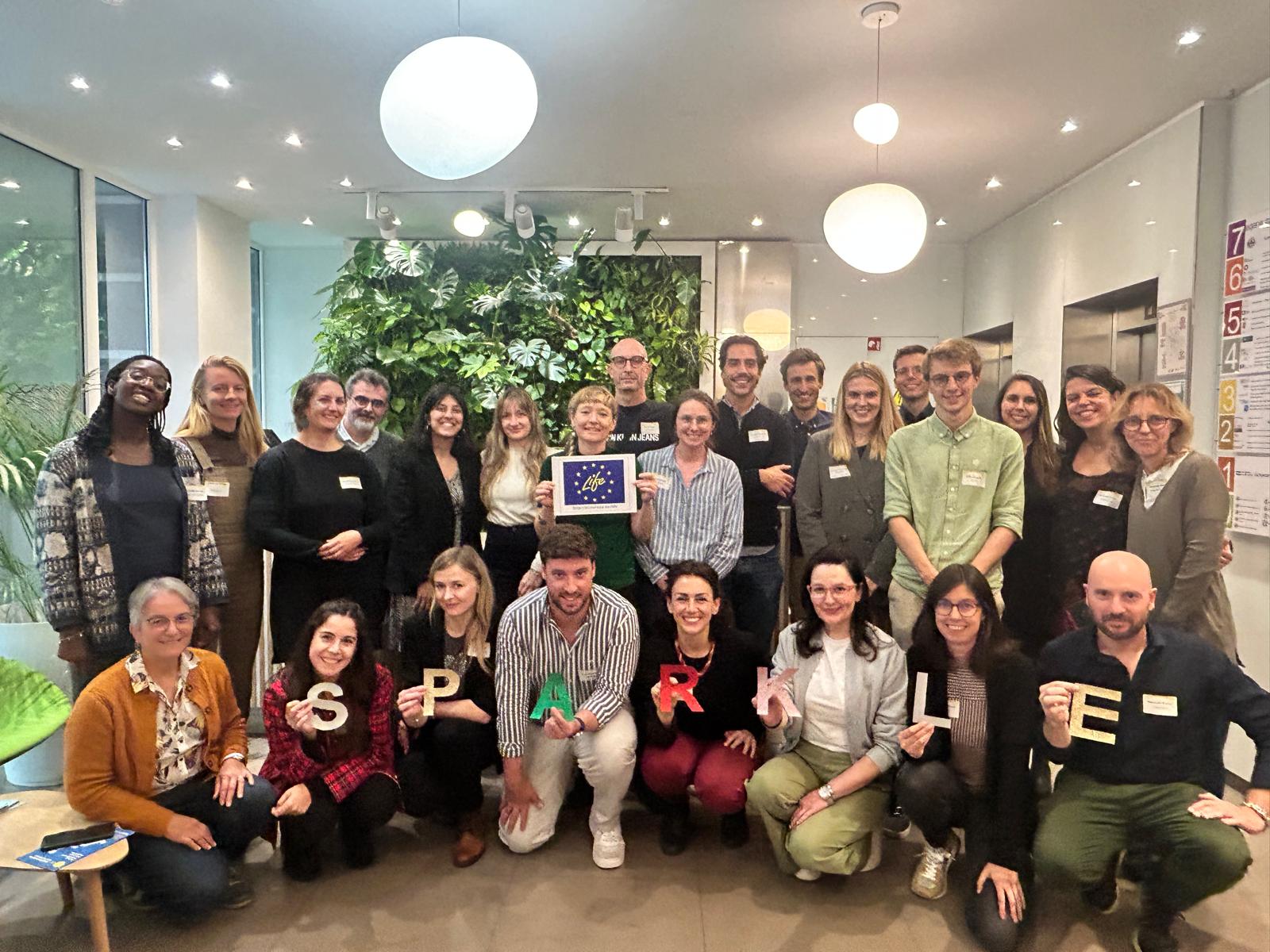PROSPER and SPARKLE projects start, with the participation of BETA TC
These two projects will further strengthen the positioning of the centre in some of its main areas of work.

This October were held the launch meetings of the PROSPER and SPARKLE projects, two new European consortia with the participation of the BETA Technological Centre of UVic-UCC. From several points of view, these two projects will further strengthen the positioning of the centre in some of its main areas of work, the analysis of the sustainability of new industrial processes of the bioeconomy and the transfer of scientifically based knowledge in local or regional public administrations.
PROSPER: Sustainable bioplastics to move towards a circular economy
The PROSPER consortium, led by the University of Ghent and with the participation of some large European companies such as Novamont, Suez or Procter & Gamble, wants to demonstrate that the recycling of bioplastics for packaging in a closed loop is technically and economically feasible on an industrial scale. CT BETA will lead the analysis of the sustainability of the process, a crucial step to ensure that these new materials not only meet the economic and operational objectives related to their production, but also respect the principles of sustainability in the long process of their life cycle.
In this sense, the environmental impact of the production of these bio-based plastics and their potential to be a viable alternative to the current conventional plastics industry will be analysed in detail. Such projects are key to the success of Circular Bio-Based Europe, a partnership between the European Union and the Bio-Based Industries Consortium that funds projects and promotes bio-based industries under the Horizon Europe programme.
SPARKLE: Better public policies at local and regional level
SPARKLE will involve a consortium of mostly local and regional public administrations, under the coordination of the Energy Cities network. The project aims to design a training programme that will reach more than 600 local and regional authorities, providing them with the tools and knowledge to help drive their own energy transition. Apart from BETA TC, the consortium also includes CLIMACT, ACR+ and RESCOOP, as well as 5 European cities: Guimaraes (Portugal), Amiestas – Vilnius (Lithuania), Porec (Croatia), Albertville (France) and Calenzano (Italy).
SPARKLE will create a learning ecosystem to support local public administrations in the development and implementation of energy transition plans and strategies. The learning ecosystem (which will operate both virtually and face-to-face) will include training, tutoring and mentoring for policy makers, with the intention of giving them direct support in the development of new policies.
The 5 main themes of the courses will be: the future of local governance, strategies for creating fossil fuel free districts and buildings, energy communities, the role of food systems and the implementation of socially just and resource efficient local economic models. BETA TC will provide scientific expertise in the field of food systems, and will collaborate with the City of Albertville to develop possible solutions.
